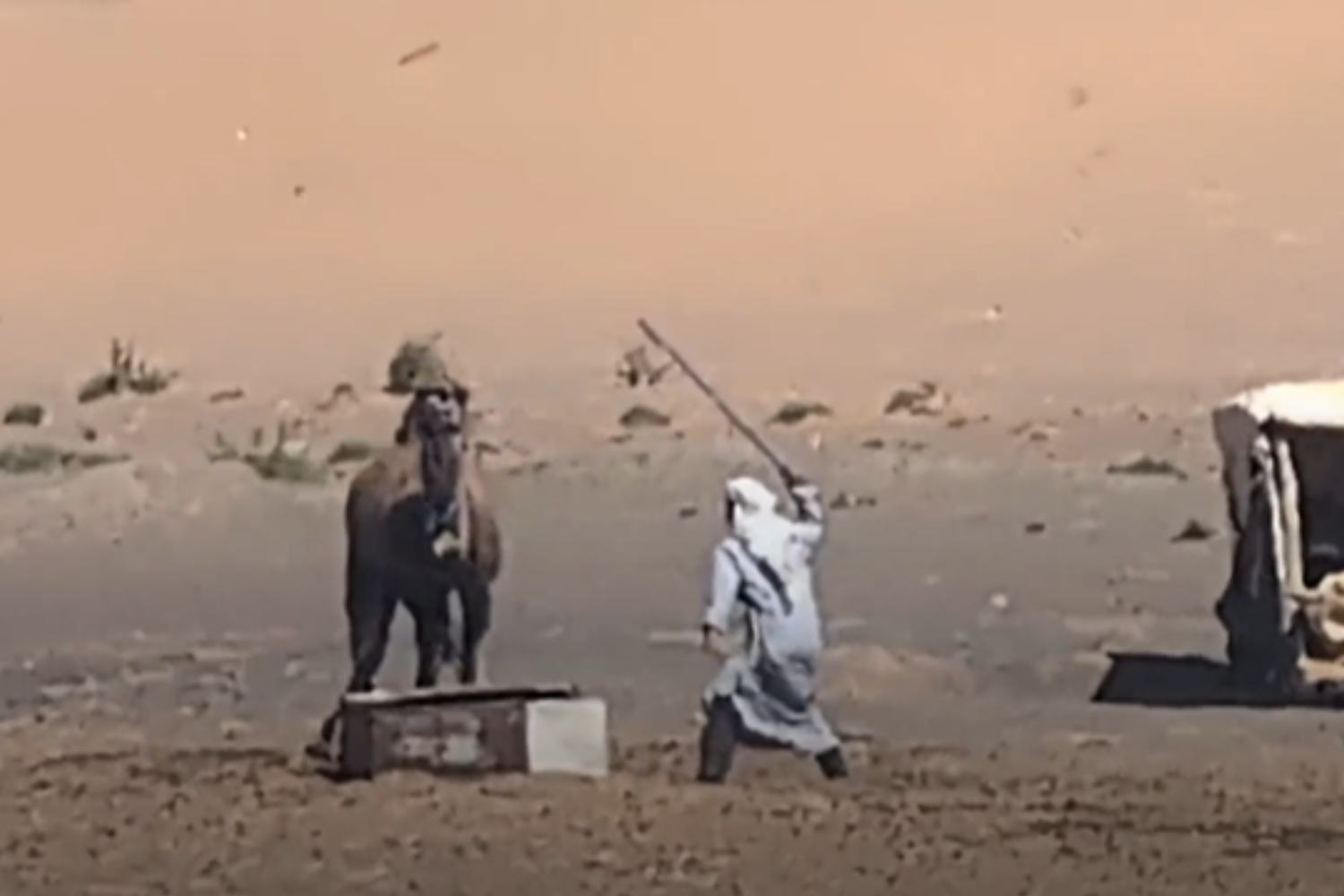A PETA Asia probe exposes systemic camel abuse in Morocco’s tourism industry—beatings, short tethers under 3.3 ft (1 m), and animals discarded after five years despite 40-year lifespans. A global model that must end.

@PETA UK/YouTube
Behind those Instagram-perfect desert tours lies something far uglier. A PETA Asia investigation has documented systemic abuse of camels used to ferry tourists in Morocco. The footage is blunt: animals beaten with sticks, tethered without shelter, and forced to haul visitors for hours under a punishing sun. The postcard sells magic; the reality is misery.
Investigators say many camels are worked for barely five years—even though they can live up to forty—and then killed or sold for meat. It’s a conveyor belt of exploitation with a brutal full stop.
Life on sand and under the stick
The videos show camels immobilized and chained with ropes shorter than about 3.3 feet (1 meter), left fully exposed to sandstorms and extreme heat. Some wear muzzles so they can’t open their mouths—not to eat, not to defend themselves.
One of the most shocking clips shows a man striking a tied camel again and again, while the animal twists and recoils, trying to dodge the blows. Marketed as props for a fantasy—the “Oriental charm” package—these animals are stripped of any semblance of welfare, forced to survive in ways that clash with their social, sensitive nature.
Camels aren’t cargo
Camels aren’t machines. They’re intelligent, social beings who communicate with vocalizations and body language. In the wild, they live in groups and display affectionate behaviors—they’ll even blow softly into each other’s faces as a friendly gesture. Tourism doesn’t make room for any of that complexity. In this industry, they’re reduced to entertainment hardware, run to exhaustion and then discarded.
A global model we should retire
This isn’t an isolated scandal. Similar abuses have been documented in Egypt, and after earlier investigations, several companies—including Airbnb—stopped promoting animal rides. If we want this cruelty to end, the onus is on all of us. Travelers need to refuse attractions that exploit animals and steer their money toward ethical, wildlife-free experiences. The message is simple: no demand, no abuse.
